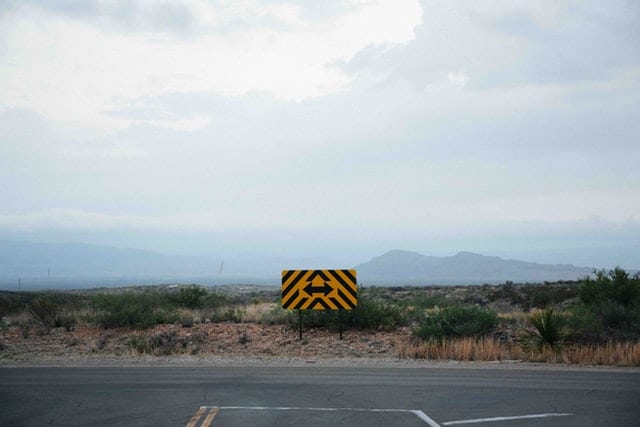If you’d told me a month ago that a pastor in America would be arrested for holding a worship service, I’d have called fascism in a hot minute. But these are strange days, and the times have called for a radical shift in not only what is normal, but a shift in what is faithful. What is faithful–and wise, and compassionate–in this particular time of contagion is to stay home and not risk the further spread of disease.
But some pastors have been reluctant to call off in-person worship services. Which, to a point, is understandable. At a spiritual level, we are wired to gather. At a more human level, faith leaders are programmed to “power through,” if you will, and come hell or high water, blizzard or blight, we go’n GIT to church, and have the coffee running when you get there. It’s been a lot to overcome in a few short weeks. Truly.
But when doctors and scientists say to stay home; when mayors and governors say to stay home; when even this train wreck of a president says to stay home; one has to question the motivations of a pastor who continues to call his folks into the dangerous proximity of a worship space. That is not a desire to gather; that is recklessness, abuse of power, and endangerment. Just to name a few. Which is why this cat went to jail.
What gets me is… you know they’ll make a martyr of him. Like he’s passed some great test or something.
This guy is the headline today, but he’s not the only one to defy social distancing orders in the name of faith. There’s an abundance of trashy memes going around about how those who are “afraid” of this virus really just need to get to know Jesus… you know, so we will be ready to die. There have been any number of pastors defy their state and local officials and stubbornly hold services, endangering countless lives in the process. In times of fear and uncertainty, bad theology often has a field day. And in this case, an overarching sentiment persists in some circles that this pandemic thing is all some big test; and those who continue to show up to church and go about life as usual are the ones acing that test, while those to comply with health directives are somehow weak, faithless and profane.
Well, I will concede that this whole thing is a test. But going to church against all medical advice is not how you pass it.

A test of faith, in and of itself, is a tricky theological concept. In scripture, they often involve tangible items– apples in the garden or bread in the wilderness; coins to be buried or invested; a lamp that must be kept burning; or a choice, when resources are scarce, between hoarding and giving away. Those who are raised on a strict diet of literal interpretation are used to answering such tests in like manner–literally. In the most direct and obvious way possible. With a tangible act or sign. Like, just for instance, going to church when somebody tells you not to. That’s a tangible sign of faith, right?
But the test of these strange days cannot be reduced to such a surface level choice between going and staying home; between what is perceived as risk and bravery, and what is perceived as lack of faith. Because, in this case, what you “risk” in going to church is life–your own, and that of others more vulnerable than you. That isn’t bravery- it’s arrogance. And staying home, in this case, isn’t cowardice; it’s love.
When the stakes are this high, it’s time to dig a little deeper and recognize that true tests of faith rarely push us towards the familiar or the routine.
Going to church? For a pastor, and for many people of faith, is the most familiar and routine response imaginable. What we are being asked to do now is lay down everything that we know in order to save lives.
The real test is a question of whether or not we can choose humility over hubris; to lay low and wait, rather than charge on with our own assumptions about what is right.
The real test is about whether or not we can learn to connect and be the Church without the comfort and safety of our buildings. Without the band, and the printed bulletins, and the brief announcement time to lull us into our usual pew.
The real test is whether we can learn new ways of serving our neighbors in times of crisis; when the needs of the community may well surpass the usual resources of the congregation. When every day brings a new challenge that we did not cover in the bylaws or the vision plan.
The real test, Church, is whether we are truly willing to sacrifice what is most important and meaningful to us for the love of our neighbor. The test is in how well we face uncertainty when all that we know is suddenly stripped from us.
This is not just a test of faith then. It’s a test of grit, of grace, and of servitude. It’s a test, not of how well we have memorized scripture and the accompanying cultural expectations of our faith–but of how well we’ve embodied the gospel itself. That timeless story of new life in unlikely places, and of light that shines in every darkness.
Because the beating heart of the gospel is what the world needs right now; and this is our chance to live out every sermon, every Sunday school lesson, every table prayer we’ve taken into our hearts up to this moment. Now is the time to act out of love and mercy rather than vanity and pride; now is the time for saying “I don’t know” rather than “watch what I can do.” And trusting that some unseen spirit moves into that space when we do.
Pray in secret, that gospel says. Not on a stage with 1000 people to bear witness to your glory. Pray alone. Pray with your family. Heck, pray in digital spaces created for business but adapted for praise and worship, and for life itself, in these very strange days. Just look at all the ways the world is being transformed, the space that is being carved out for faithful living in a new reality.
The real tests of faith are never about the objects themselves. And they are most certainly not about how tightly we can hold onto our certainty, our comfort, our life-as-usual in the face of a world turned upside down. The test is never about what you can grasp; but what you might be willing to lay down for love.












